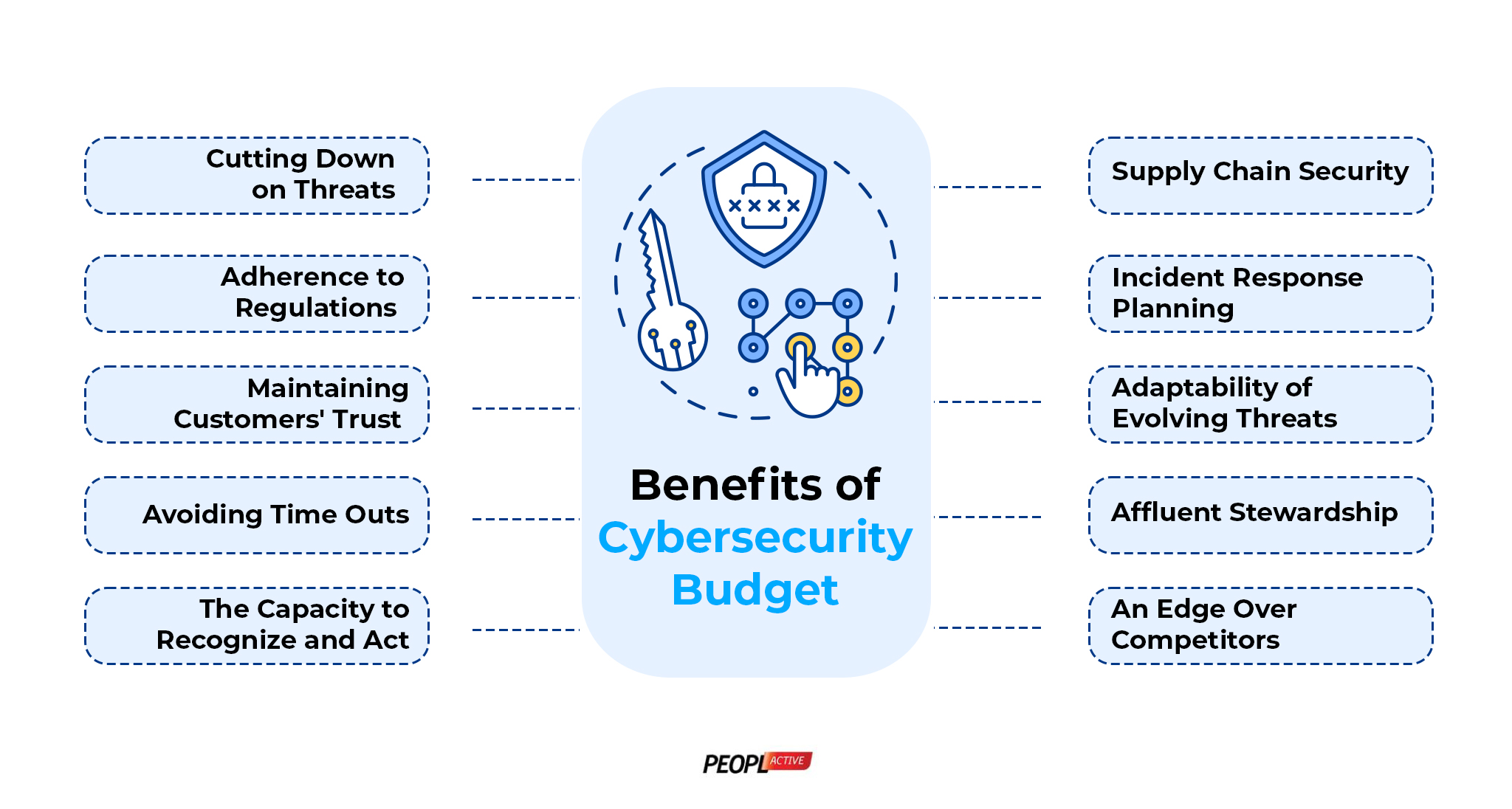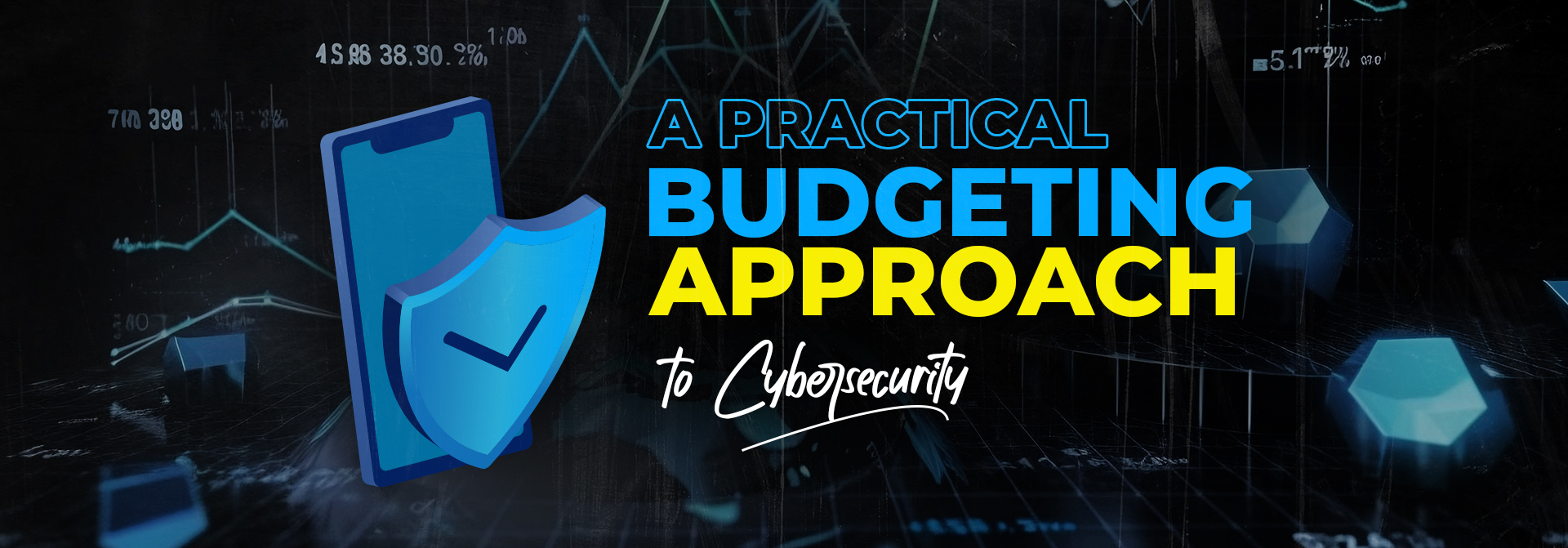Small businesses are regularly the victims of data breaches and other intrusions by hackers. Cybersecurity events may cripple your company and erode customer confidence, and recovering from these assaults is expensive. Organizations of all sizes must implement cybersecurity precautions and hire cybersecurity engineers to help prevent these terrible repercussions.
Like many other necessary organizational processes, cybersecurity has expenses. But how much cash should you set aside for the cyber protection of your business? We’ll look at the most effective ways to budget for cybersecurity, talk about how much cyberattacks cost, and name a few types of cyber incidents you should be aware of.
Also Read: Why Should Businesses Opt for Cybersecurity Consulting?
Why is a Cybersecurity Budget Necessary for Your Business?
Cybersecurity has an effect on companies of all kinds. Netwrix Research Lab’s 2023 Hybrid Security Trends Report states that 68% of all questioned firms—regardless of size—reported having experienced a cyberattack in the preceding year. In other words, 43 percent of data breaches concerned small businesses.
Following are a few main advantages:

Cut Down on Threats
Companies can minimize their risk of data breaches, financial losses, and reputational damage by using a cybersecurity budget to detect and mitigate any security concerns.
Adherence to Regulations
A variety of enterprises are required to abide by laws pertaining to the protection of private data. By setting aside a particular amount of money for cybersecurity, you may adhere to these regulations and shield your organization from fines and legal action.
Maintaining Customers’ Trust
Businesses that prioritize data security have a higher chance of winning over customers’ trust. Companies can demonstrate their concern for protecting customer data, fostering loyalty, and fostering trust by allocating funding for cybersecurity.
Avoiding Time Outs
Cyberattacks that cause a great deal of downtime can affect revenue and output. By dedicating resources to cybersecurity measures, businesses may reduce operational disruptions and maintain stability.
The Capacity to Recognize and Act
Cyberattacks can cause a number of disruptions that could affect output and income. By making cybersecurity investments, businesses may maintain stability and avoid operational disruptions.
Supply Chain Security
Regular business connections are made via supply networks. By taking part in security procedures, suppliers, partners, and collaborators can assist companies in lowering overall risk and implementing cybersecurity expenditures.
Incident Response Planning
By putting together, a budget, businesses may develop and test incident response plans often. When a cyber event occurs, this preparedness ensures a quick and effective response, minimizing the harm.
Adaptability to Evolving Threats
Cyberspace threats are ever evolving. By modernizing their defenses and investing in state-of-the-art equipment, businesses that allocate funds for cybersecurity may remain ahead of emerging threats.
Affluent Stewardship
Cybersecurity events may result in severe financial losses. Businesses can lessen the financial damage from possible breaches and steer clear of unforeseen expenses for recovery operations by making proactive investments in cybersecurity.
A Competitive Advantage
If you can show that you’re very committed to cybersecurity, you can have an advantage over other candidates. You may be able to differentiate your company from rivals if investors, partners, and customers value security.
In Which Cybersecurity Domains Should Your Budget Be Allocated?
Cybersecurity is a very well-known field. When creating their budgets, small businesses should place the highest emphasis on the following investment categories:
Infrastructure Investment
Firewalls, IDS/IPS, and Antivirus Solutions:
- It is essential to buy and maintain robust firewall systems in order to monitor and control network traffic.
- Systems called intrusion detection and prevention systems (IDS and IPS) are used to identify and stop malicious activities.
- Invest in pricey antivirus software to protect against malware threats that are always changing.
Data Protection Measures
Encryption Tools
- We utilize encryption technology to protect sensitive data while it is being transmitted and stored.
- To safeguard data over its entire lifecycle, use end-to-end encryption.
Data Loss Prevention (DLP) Solutions
- Invest in DLP solutions to keep an eye out for, identify, and stop illegal access to, and distribution of, sensitive data.
- Create procedures and guidelines for data security and management.
Endpoint Security
Endpoint Protection Platforms (EPP)
- Devices like PCs and mobile phones can be secured with EPP solutions.
- Fighting new threats requires regular patching and updating of endpoint security software.
Mobile Device Management (MDM)
- Utilizing MDM technologies, safeguard the privacy and security of mobile devices inside the company.
- Establish secure access boundaries for mobile devices and a variety of security measures.
Incident Response Planning
Creating and Examining Incident Response Plans
- Identify, identify, and resolve security event scenarios by developing comprehensive incident response methods.
- To stay ahead of evolving threats, make sure incident response plans are regularly evaluated and revised.
Security Information and Event Management (SIEM) Systems
- If you want to quickly identify security vulnerabilities, invest in SIEM solutions that gather, analyze, and correlate log data.
- An integrated security approach can be created by merging SIEM with incident response operations.
What is the Appropriate Budget for Cybersecurity?
When calculating the entire IT budget for a company, which takes into account the enterprise’s size and IT infrastructure, cybersecurity investment is frequently included. 54% of businesses worldwide intend to raise their IT budgets, according to the 2023 State of IT survey, for the reasons listed below:
- Security-related incidents have been reported recently.
- Updating outdated systems to lower security vulnerabilities.
- Improvement of antivirus programs.
- Paying more on managed security services.
Cybersecurity accounts for an average of 12% of worldwide company IT budgets, as reported by Statista. For instance, if a business paid an IT-managed service provider $3,000 to handle its IT obligations, its monthly cybersecurity budget would be roughly $360.
However, the amount of total IT spending that is devoted to cybersecurity will differ significantly due to the following factors:
Risk Assessment
By doing a comprehensive evaluation of the cybersecurity risks facing your business, you will be able to identify and rank them. A summary of the chances and consequences of different risks should be part of this.
Business Category and Size
More funding is typically needed for cybersecurity by larger businesses and those engaged in highly regulated sectors like finance and healthcare.
Compliance Conditions
Make sure your budget takes company rules and data privacy legislation into account. Financial and legal repercussions could follow noncompliance.
Content Relevance
Think about the multiple data kinds of your company manages. The quantity of cybersecurity required grows with the sensitivity of data, potentially affecting budgetary allocation.
The Technological Surroundings
As you assess the complexity of your IT infrastructure, take new technologies into consideration. Perhaps additional funding for cybersecurity is required in more complicated scenarios.
Current State of Cybersecurity
Right now, review your cybersecurity setup and procedures. Once you’ve determined what needs to be improved, set aside the required funds.
Cybersecurity must be viewed as a continuous process, and the budget must be evaluated and modified frequently to reflect evolving threats, technological advancements, and business needs. As an investment in safeguarding the company’s resources, good name, and general defense against cyberattacks, a reasonable budget ought to be established based on its risk tolerance. Decisions about the budget can also be influenced by collaborating with cybersecurity specialists and remaining up to date on industry standards. To defend your business against fresh threats, hire cybersecurity engineers.
Also Read: The Importance of Understanding the Unique Challenges of IT & OT Cybersecurity
Wrapping it up
Businesses must take a pragmatic approach to cybersecurity spending if they want to fortify their defenses against the constantly changing world of cyber threats. This type of budget may or may not be acceptable, depending on the organization’s size, industry, and degree of risk exposure. Strategic resource allocation across critical areas is a feature of a complete cybersecurity budget. Hiring cybersecurity consulting services becomes a critical tactic in this scenario. The risk assessments, compliance initiatives, advanced technology implementation, and creation of strong incident response plans are all important contributions made by these consultants. Proactive and adaptable cybersecurity is ensured by their proficiency in ongoing surveillance and legal adherence. Furthermore, cybersecurity experts are essential in strengthening the total organizational ecosystem through supply chain security solutions and third-party evaluations. Thus, partnering with PeoplActive’s Cybersecurity Consulting services not only increases the effectiveness of the cybersecurity budget but also constitutes a wise investment in preserving organizational resources, upholding operational integrity, and fostering stakeholder confidence in the face of a constantly changing and complicated digital environment.


















